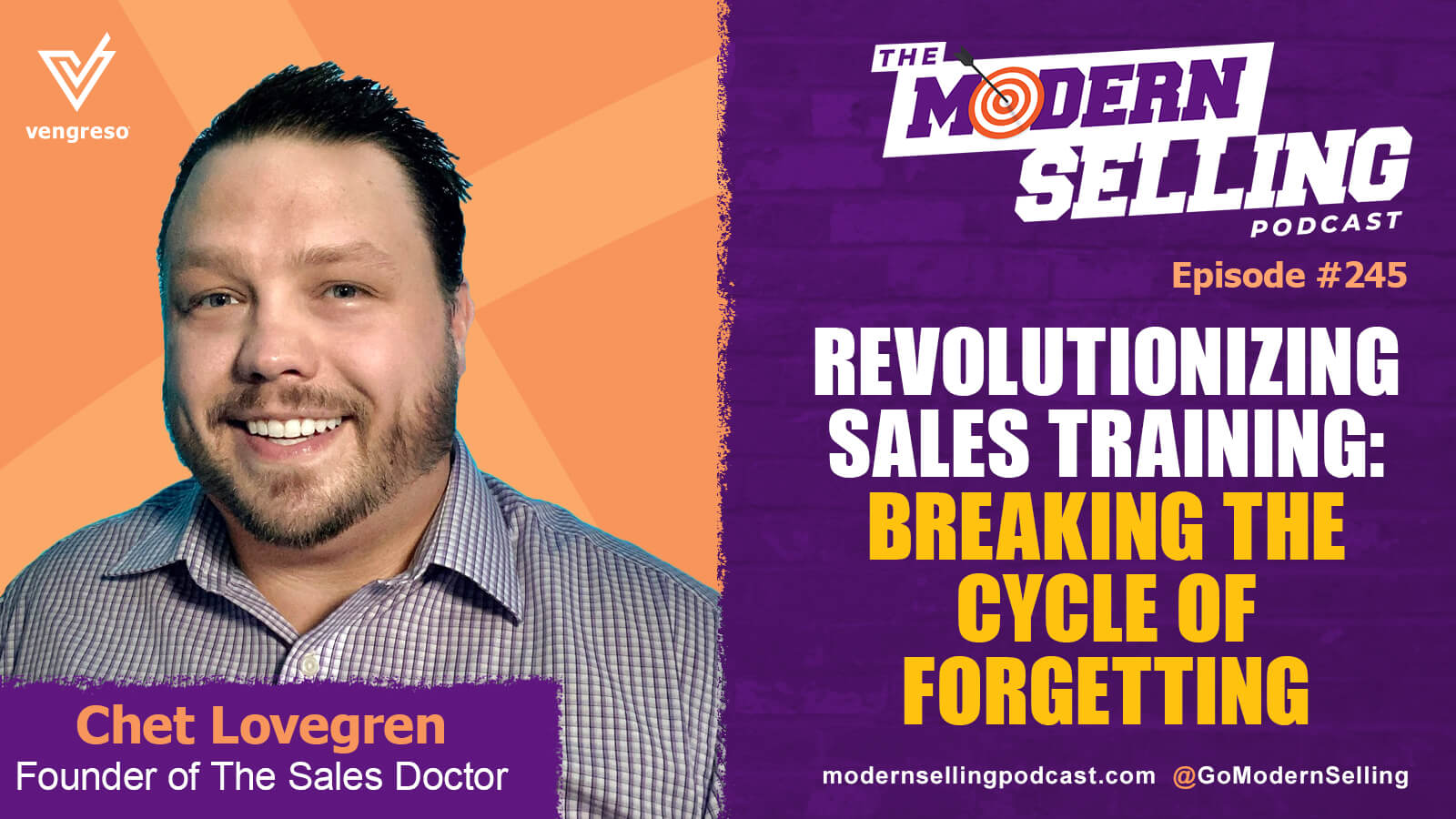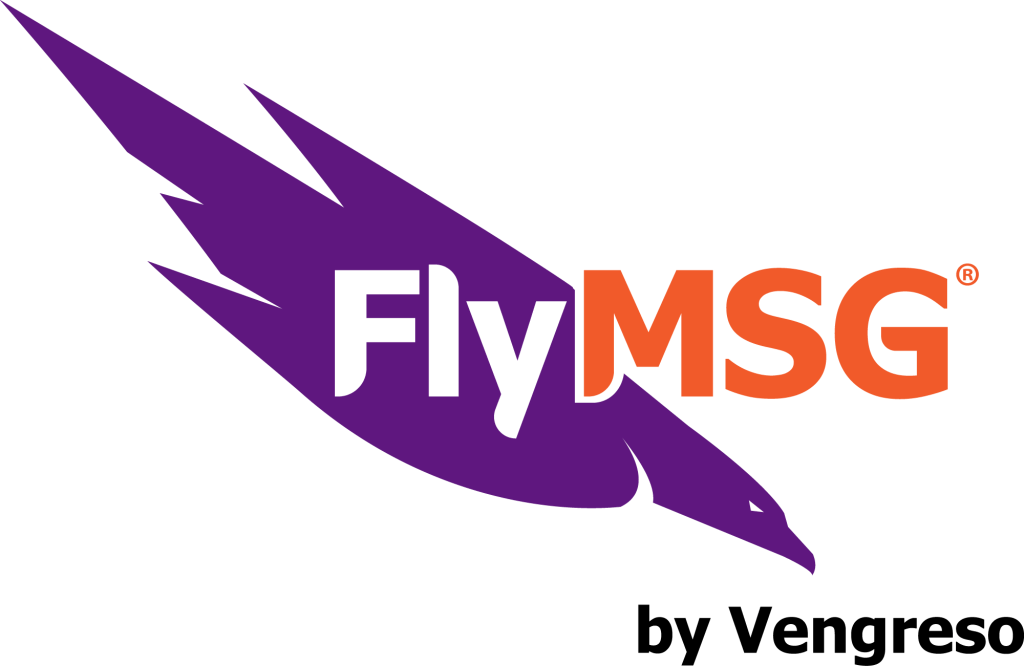Does this sound familiar? You invest time and resources into sales training programs, only to see little improvement in your team’s performance. You’ve been told that simply providing more information and content will lead to better results. But the pain you’re feeling is the frustration of seeing your team struggle to apply what they’ve learned, resulting in missed sales opportunities and stagnant growth. It’s time to break free from ineffective methods and discover the key to truly impactful sales training.
Subscribe to Modern Selling on the app of your choice!Episode Overview
In this episode, Mario Martinez Jr. invites sales leader and consultant Chet Lovegren to discuss the challenges of traditional sales training. Lovegren emphasizes the need for a different approach to onboarding and training that focuses on making information stick and turning it into a habit. He suggests structuring onboarding programs in a week-by-week format, focusing on singular topics each week. Lovegren also highlights the importance of covering essential topics such as company culture, mission, and values during onboarding to help reps build trust and connect with customers. He further recommends understanding target audiences and using problem-centric language to engage with potential customers at the right time. Lovegren stresses the need for collaboration between sales enablement and sales teams to create effective onboarding programs, as well as the importance of one-on-one conversations to reinforce training content.
Mario Martinez Jr. adds insights on spacing and chunking techniques in training, advocating for breaking down topics into smaller sections spread over a period of 60 to 90 days. Listen to this episode to gain valuable insights on how to improve your sales onboarding and training programs.
What You’ll Learn
Discover the key insights and strategies for transforming your sales onboarding and training programs with sales leader and consultant, Chet Lovegren, on this episode of The Modern Selling Podcast. Lovegren highlights the alarming statistics that reveal how easily sales reps forget the information they learn during traditional training sessions. He suggests a new approach that focuses on making information stick and turning it into a habit. Lovegren recommends structuring onboarding programs with a week-by-week approach, covering singular topics each week. He emphasizes the importance of including essential topics like company culture and values during onboarding to help reps connect with customers and build trust. Lovegren also emphasizes understanding the target audience and using problem-centric language to engage with potential customers at the right time. Mario Martinez Jr. adds his insights on spacing and chunking techniques in training, advocating for breaking down topics into smaller chunks and spacing them over a 60-to-90 days.
There’s an archaic way we do sales enablement and coaching… I wanted to solve for that with the Sales Doctor. – Chet Lovegren
About Our Guest
Introducing Chet Lovegren, a seasoned sales maven who has spent more than a decade mastering the art of sales and sales leadership. Known as the Sales Doctor, he has built an impressive reputation through his strategic counsel to various startup ventures. Besides being a pivotal driving force behind Pavilion’s top-notch sales course content, Chet founded Sales Doctor. His strong viewpoints on traditional sales training sparked revolutionary changes in the field. Chet’s relatability and expertise make him a go-to resource for organizations seeking to overhaul their sales strategies.
- Confront the barriers inherent in traditional sales training often overlooked in the industry.
- Grasp the formidable impact of consistent and succinct sales training on team performance and overall business health.
- Uncover the vital force of intentionality for ensuring effective sales training that yields tangible results.
- Understand why robust onboarding programs are a non-negotiable in B2B sales for long-term success.
- Dive into the trenches of assessing new hire performance and fostering a culture of accountability that keeps everyone aligned with company goals.
Timestamped Summary of this Episode
00:00:08 – Introduction
Mario Martinez Jr. introduces the podcast and Chet Lovegren, the Sales Doctor, as his guest.
00:04:11 – Fun Fact about Chet
Chet Lovegren shares that he has broken his nose twice and that 80% of his nose is fake.
00:06:20 – Why Traditional Sales Training Doesn’t Work
Chet explains why traditional sales training and enablement programs fail due to lack of engagement, retention, and relevance.
00:09:23 – Emulating Onboarding for Effective Training
Chet suggests a more effective approach to sales training by emulating the onboarding process, with concise, compact, and recurring training sessions for specific topics.
00:12:04 – Importance of Intentional Training
Chet emphasizes the importance of intentional training with clear goals and structured daily sessions to ensure retention, practice, and application of new skills.
00:13:07 – The Problem with Onboarding Programs
Many B2B sales reps forget the information they learn within a week or a month of training. Traditional onboarding programs often involve overwhelming reps with content in a short period of time. This approach does not lead to long-term retention or habit formation.
00:13:54 – Improving Onboarding Programs
Companies can improve their onboarding programs by adopting a focused and structured approach. Instead of overwhelming reps with information, they should dedicate each week to a specific topic, such as people, problems, process, and practices. This allows for better retention and application of knowledge.
00:16:35 – Building the Right Onboarding Program
To build an effective onboarding program, companies need to focus on specific areas of the business and create a narrative that leads to hands-off training. It’s important to cover topics like company mission, vision, values, and history. Onboarding programs should be developed in collaboration with sales leaders and enablement professionals with recent sales experience.
00:18:49 – The Flaws of Traditional Sales Training
Traditional sales training programs that cram a large amount of content into a few days are ineffective. The spacing effect, which involves spreading out training over time, is a more successful approach. Using the chunking technique, sales training should be broken down into smaller topics that can be addressed over a period of 60-90 days.
00:21:26 – Importance of Ongoing Coaching
Ongoing coaching and reinforcement are crucial
00:25:24 – Effective Measurement of New Hires
The discussion focuses on how companies can effectively measure the performance of new hires early on to determine if they are the right fit. The guest suggests using software tools like Yardstick to collaborate with sales leaders, HR, and team members. By integrating colleague interviews and surveying feedback, companies can identify if a new hire is not meeting expectations and make decisions sooner rather than later.
00:29:36 – Challenges in Building a Culture of Accountability
Sales leaders often struggle to build a culture of accountability and performance. The guest believes this is because there are numerous ways to measure performance but limited ways to measure engagement. He suggests creating a culture of participation and integration, where everyone is involved in meetings and performance reviews. By highlighting performance and comparing results, accountability can be increased and underperforming individuals can be identified and addressed more effectively.
00:30:57 – Importance of Engaging Sales Teams
The guest emphasizes the importance of engaging sales teams and setting expectations for their participation. By involving them in meetings, presentations, and performance reviews, accountability can be increased. He argues that being politically correct and avoiding highlighting underperforming individuals can hinder performance and motivation. Sales is a performance-based job, and individuals need to be able to handle the pressure and scrutiny that comes with it.
00:34:31 – The Role of Stack Ranking and Accountability
The guest discusses the role of stack ranking in highlighting underperforming individuals. He believes that avoiding stack ranking due to concerns about hurting individuals’ feelings can be counterproductive
00:37:53 – The Importance of Leadership in Sales
Chet discusses the impact of leadership in sales and how great leaders focus on accountability, coaching, and motivation. He believes that leaders should lead by example and inspire their team to rise to their level.
00:38:26 – Promoting Salespeople with Leadership Skills
Chet shares his perspective on promoting salespeople to leadership positions. He values individuals who have leadership qualities, even if they are not top performers. He mentions that high-performing lone wolves can create toxic work environments, and success may be the result of unethical practices.
00:39:13 – Beware of Wildly Successful Salespeople
Chet warns against blindly promoting wildly successful salespeople. He highlights the importance of looking beyond quota attainment and evaluating how individuals contribute to the overall team and company culture. He shares an example of a sales rep who achieved exceptional results due to a rigged system.
00:40:05 – Connecting with Chet Lovegren
Chet provides various ways to connect with him, including his website, LinkedIn, and TikTok. He offers resources, podcasts, and educational content on sales.
00:41:00 – Chet’s All-Time Favorite Movie
Chet reveals that his all-time favorite movie is “Rain Man.” He describes it as a perfect story about male relationships, brotherhood, and friendship, with a pure and lovely portrayal of the bonds people can create.
Confronting Barriers in Sales Training
Chet Lovegren highlights the significant challenge B2B sales reps face when digesting traditional training methods: forgetting nearly all the new information within a month. This issue stems from an outdated approach of condensing too much data into a brief training period, which proves ineffective for long-term retention. Adopting new strategies, such as week-by-week topic-specific training, can make these programs more impactful by integrating the information slowly and thoroughly.
Resources
- Visit the Vengreso.com website to learn more about FlyMSG.IO, the free personal writing assistant and text expander application created by Mario Martinez Jr.’s company, Vengreso.
- Subscribe to the Modern Selling Podcast to hear from sales leaders, practitioners, and influencers who can help you grow your sales numbers at scale.
- Check outChet Lovegren, also known as the Sales Doctor, and learn more about his role as a strategic advisor to portfolio companies and startups.
- Explore the Sales Doctor’s short-term and long-term engagements, which offer solutions for teams that need help with execution or companies looking to build or rebuild their sales motion.
- Consider the Sales Doctor‘s approach to sales training and coaching, which focuses on more concise, compact, and recurring training sessions that emulate the engagement and retention of onboarding.
- Learn about the forgetting curve phenomenon and why traditional sales training and enablement programs often fail to engage and retain information.
- Discover alternative methods, such as virtual instructor-led training, that prioritize engagement and retention by providing more relevant and condensed training sessions.
- Understand the importance of intentional and structured training sessions that cover specific topics and include exercises and practice to ensure information is retained and enacted







